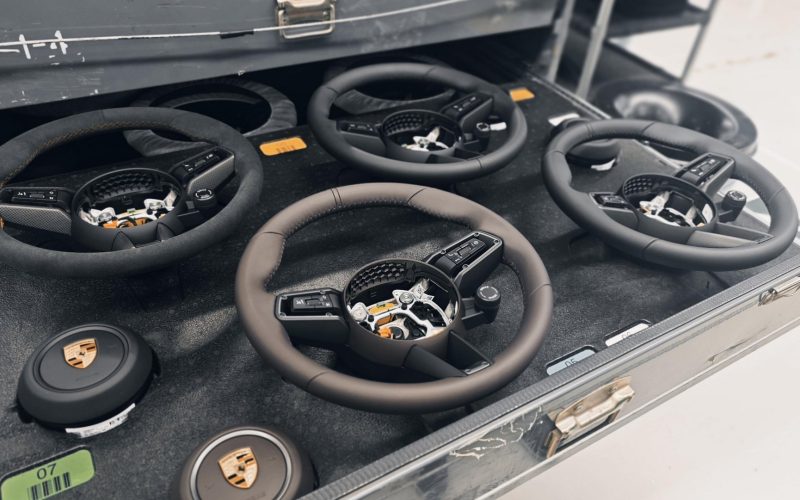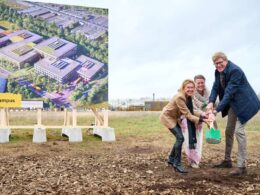Porsche AG and BASF SE, working with technology partner BEST Bioenergy and Sustainable Technologies GmbH, have completed a joint pilot project exploring new recycling methods for mixed waste from end-of-life vehicles.
The initiative demonstrated that high-performance plastics contained in automotive shredder residue (ASR) – a complex mixture of foams, plastics, films and paint particles – can be recycled through chemical processes. At present, such material is typically incinerated due to its heterogeneous composition.
The pilot project used advanced gasification technology to convert mixed plastic waste into synthesis gas at high temperatures. For the first time, the process was run entirely without fossil-based inputs, instead combining automotive waste with bio-based raw materials such as wood chips. Within BASF’s integrated production network, this synthesis gas was used to produce new plastics, including polyurethane formulations applied in the manufacture of steering wheels. A mass balance approach was used to attribute the recycled content to the finished products.
Gasification, a form of chemical recycling, could become a viable alternative to thermal recovery, enabling the reuse of plastics that cannot be mechanically recycled for technical or economic reasons. The process offers raw materials of comparable quality to conventional feedstocks, suitable for high-performance and safety-relevant components.
Dr Robert Kallenberg, Head of Sustainability at Porsche AG, said: “Pilot projects like these allow us to evaluate how we can further develop the circular economy as a sustainability field at Porsche and how we can anchor chemical recycling in our strategy in the long term. We are testing new recycling technologies with our partners in order to increase recyclate quotas, gain access to previously unusable sources and evaluate new processes for waste streams that are currently being thermally utilised.”
Martin Jung, President of BASF’s Performance Materials division, added: “BASF offers a wide range of recycling solutions and we strongly believe that different recycling technologies must complement one another to achieve recycling targets. We prioritise mechanical recycling, but complementary solutions such as chemical recycling are essential to address waste that is still incinerated today.”
The project underscores Porsche’s ambition to strengthen circularity in vehicle manufacturing by increasing the proportion of recycled materials in its cars, while also highlighting the potential of chemical recycling to transform automotive waste streams into valuable resources.



















